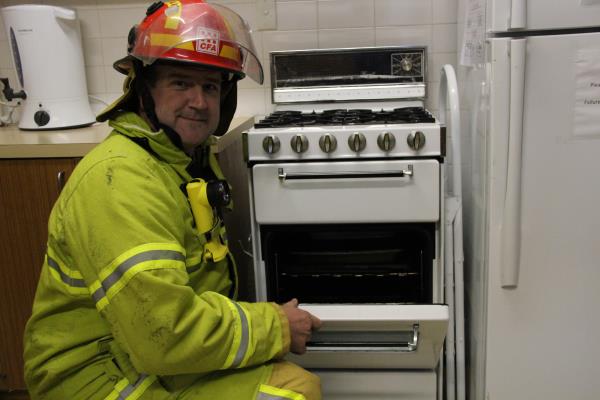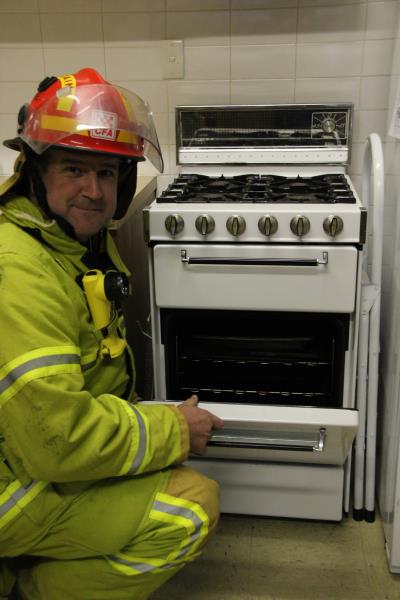By MELISSA MEEHAN
MOST fatal house fires could be avoided.
With the cooler months ahead and the onset of winter, Upwey fire brigade wants to remind residents of a few simple things they can do to help protect their families from the dangers of fire.
These simple tips include taking time to check hotspots, making sure homes have a working smoke alarm and preparing a home fire escape plan.
These can give residents a chance of avoiding a devastating fire at home or surviving one if it does break out.
Upwey brigade Captain Paul Mather said that most fires started in the kitchen, whether from unattended cooking or by letting grease and fat build up on stoves and grills.
He said it was also important that residents kept tea towels and curtains away from appliances when cooking.
“Each year brigades are responded to house fires as a direct result of poor maintenance where residents have not been vigilant and ignored the need to service heaters or get their chimney flues cleaned,” he said.
“All of these can be avoided with some simple checks and regular servicing.”
* Lint filters in clothes dryers need to be cleaned regularly and dryers should always be left to complete their cool down cycle.
· Drying clothes too close to heaters is another avoidable situation that often causes house fires.
· Never smoke in bed and ensure cigarette ash and butts are fully extinguished.
· Ensure coals from fires are emptied into a steel bucket or similar and that the coals are fully extinguished before disposing of.
· By law every home must have at least one working smoke alarm installed on each level of the house. Clean and check alarms regularly and make sure they are in full working order.
· Each home should have a fire extinguisher and a fire blanket – know how to use them.
· All families should prepare a home fire escape plan and practise it regularly. This identifies all the exits in the home and the designated location where family members will meet once they are safely outside.
· Any visitors or people that stay in the home should be aware of the fire escape plan. They should be shown the exits and where the telephone and emergency numbers are located.
“Conducting fire drills regularly with the whole household is a great way to identify the quickest and safest way to get out of the house from every room, including upper floors,” Cpt Mather said.
More information can be found by visiting www.cfa.vic.gov.au/plan-prepare/ or by calling into a fire station.








